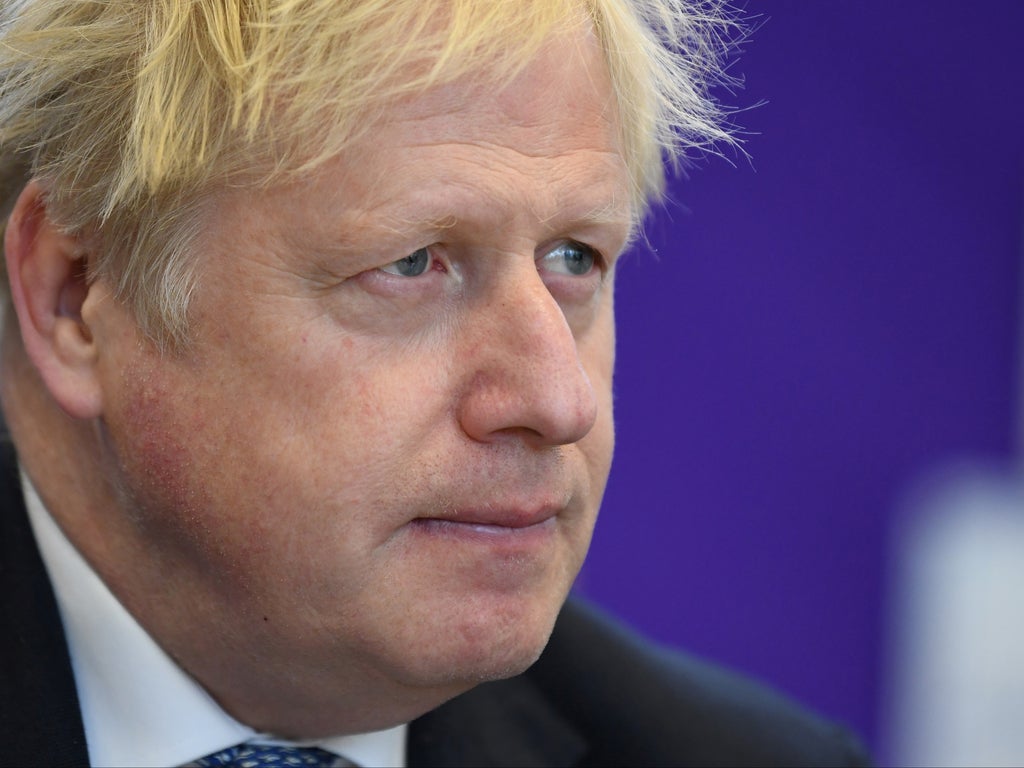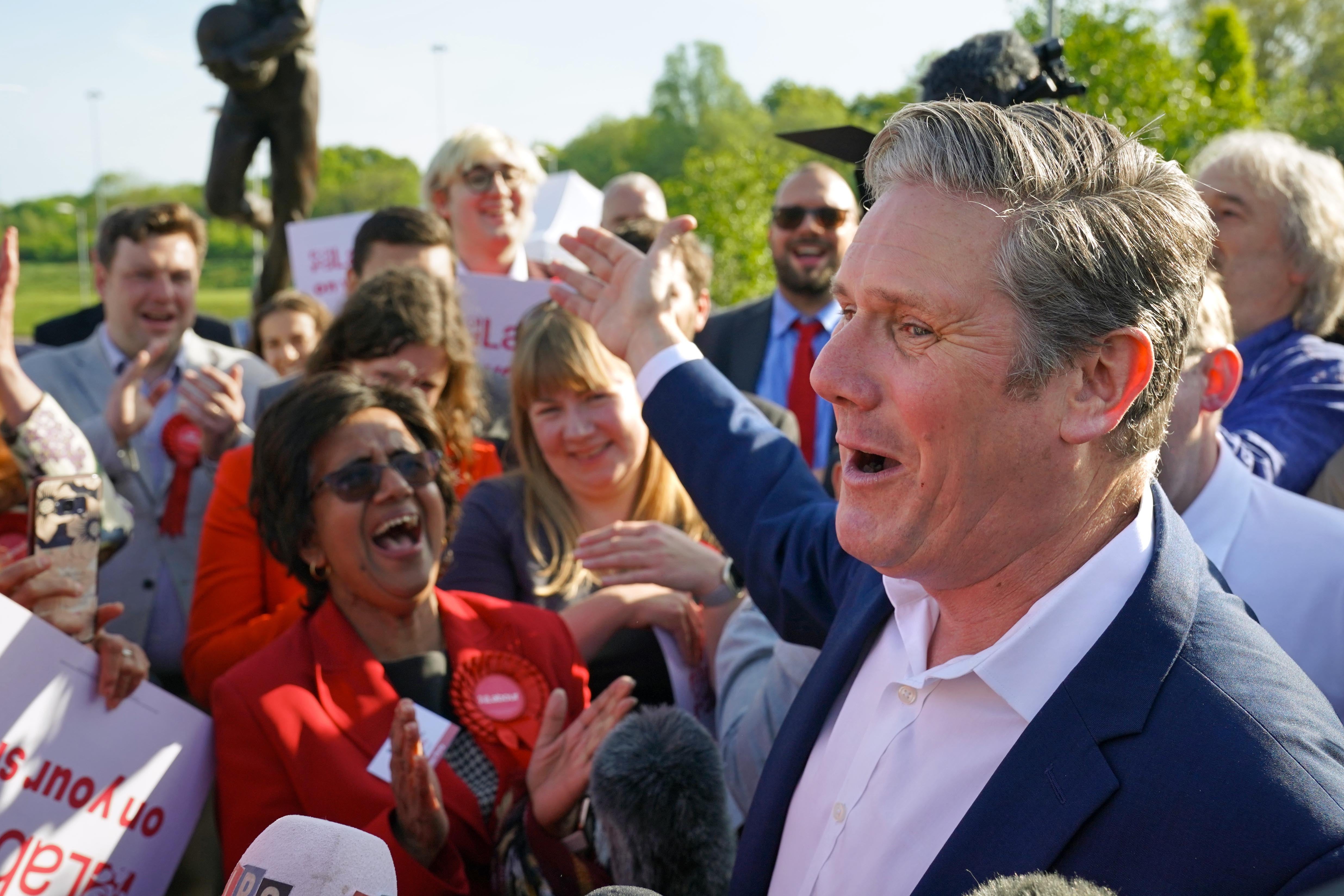
Boris Johnson remains an electoral asset to the Conservatives, a cabinet minister has insisted, despite the Tories suffering a net loss of almost 500 seats in local elections across Great Britain.
Education secretary Nadhim Zahawi urged Tory MPs not to move against the prime minister, despite rebel backbenchers saying the leadership issue “brought to a head” soon.
“He is an asset, absolutely,” Mr Zahawi told Sky News. “If you look at the way that Boris cuts through in places like Nuneaton, places like Newcastle-under-Lyme, other parts of the country as well – Harrow in London.”
In a message to Tory colleagues, he said: “People don’t like to vote for split parties, for teams that are divided. “We are stronger when we are united – that would be my message to all my colleagues.”
However, Tory MP Aaron Bell, a critic of the prime minister, said the issue of his leadership must be “brought to a head” soon.
Mr Bell, who has already submitted a letter of no confidence in Mr Johnson, told BBC Radio 4’s Today: “I don’t think we can continue having this hanging over the party for many more months to come, with the Metropolitan Police and Sue Gray and then the Privileges Committee.”
He said it was “perfectly reasonable” for colleagues to wait until the publication of senior official Ms Gray’s report, but “we do need to bring this to a head, one way or another, so that we can draw a line under this”.
As of Saturday morning, with only a couple of counts to go in England, the Tories had lost almost 500 council seats – including 341 in England, 63 in Scotland, and 86 in Wales.
Mr Johnson admitted his party had experienced a “tough night” in London and the south of England – where Partygate proved a major issue, sparking alarm among Tory MPs in traditionally rock-solid seats.
Marcus Fysh – the Tory MP for Yeovil who has not declared his opposition to Mr Johnson – said he was “devastated” by the loss of Somerset county council to the Liberal Democrats.
“We need a radical change of approach on the economy and I don’t think the team we’ve got as currently constituted is capable of delivering that,” he told The Times. “We need to discuss amongst colleagues whether Boris is the right person to do that.”
On Friday, David Simmonds, the Tory MP for Ruislip, Northwood and Pinner, said “a change of leader” could be one way of restoring public confidence in the government after admitting Partygate had caused a major loss of trust.
Sir Roger Gale, the first Tory to announce no confidence in Mr Johnson, suggested a challenge could come within as little as three weeks, telling The Independent: “There’s a tide that’s flowing that’s unstoppable. Something has got to happen.”
Another senior Tory backbencher told The Independent it was now “clearly very much in the interests of both Labour and the Liberal Democrats to keep Boris in place”, said the MP. “He is clearly leading us down not up.”

Tory peer Lord Hayward said there had been a “revolt of the upper to middle class” against Mr Johnson’s leadership.
The election analyst said it was the “university educated, managerial, Remain-oriented groups who have defected”, while many long-term Conservative supporters had stayed at home during the local elections.
An analysis for the BBC by Professor Sir John Curtice calculated that if the whole country had been voting, Labour would have gained 35 per cent of the vote – five points ahead of the Tories on 30 per cent – the party’s biggest lead in local elections for a decade.
Sir Keir Starmer said that Labour results in London – as well as Crawley and Southampton, which they snatched from Tories, and Kirklees, Rossendale and Worthing, where they gained overall control – marked a “massive turning point” for Labour.
Sir Ed Davey’s Lib Dems took the new unitary authorities of Somerset - also traditional Conservative territory - and Westmorland and Furness and dislodged the Tories in West Oxfordshire, pushing the council into no overall control.
Labour gained around 140 council seats, while the Lib Dems gained more than 220. The Green Party gained more seats than Labour in England – adding 60 councillors to its tally.
Meanwhile in Northern Ireland, Sinn Fein is on course for a historic victory in the Assembly election, after receiving the most first-preference votes.
The republican party secured 29 per cent of first preference votes, compared with 21.3 per cent for the DUP, 13.5 per cent for Alliance, 11.2 per cent for the Ulster Unionists and 9.1 per cent for the SDLP.
With the DUP refusing to resume powersharing at Stormont until the government ditches protocol checks, Mr Zahawi said options for dealing with the issue remain on the table.
“The important thing is to try and make sure we work with the parties in Northern Ireland, but also with the European Commission to make sure that we leave no stone unturned to try and make it work,” he said.







